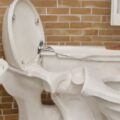Choosing the right air purifier for your home or office can be a daunting task, especially with the plethora of options available in the market. This comprehensive guide will help you understand the key factors to consider when purchasing an air purifier, ensuring you make an informed decision.
Understanding the Importance of Air Purifiers
Air purifiers are essential devices that help in improving indoor air quality by removing contaminants such as dust, pollen, smoke, and pet dander. With rising pollution levels and increasing awareness about indoor air quality, investing in a good air purifier has become more critical than ever.
Types of Air Purifiers
Before diving into specific features, it’s important to understand the different types of air purifiers available:
- HEPA Filters: High-Efficiency Particulate Air (HEPA) filters are known for their ability to capture 99.97% of particles as small as 0.3 microns.
- Activated Carbon Filters: These filters are effective in removing odors, gases, and volatile organic compounds (VOCs).
- UV-C Light Purifiers: These purifiers use ultraviolet light to kill bacteria and viruses.
- Ionic Purifiers: These devices release negative ions that attach to airborne particles, causing them to fall to the ground.
- Ozone Generators: Ozone purifiers release ozone to neutralize pollutants, but they are not recommended for regular home use due to potential health risks.
Key Features to Look For
When choosing an air purifier, consider the following features to ensure you select the best option for your needs:
- CADR (Clean Air Delivery Rate): This rating indicates how quickly the purifier can clean the air in a specific room size. Higher CADR values mean faster and more efficient air cleaning.
- Filter Replacement Indicator: A useful feature that alerts you when it’s time to replace the filters.
- Noise Level: Consider the noise level, especially if you plan to use the purifier in a bedroom or office.
- Energy Efficiency: Look for energy-efficient models to save on electricity bills.
- Smart Features: Some purifiers come with smart features such as air quality sensors, app connectivity, and voice control.
Room Size and Placement
It’s crucial to choose an air purifier that is suitable for the size of the room where it will be used. Measure the room’s square footage and check the manufacturer’s recommendations to ensure optimal performance. Additionally, place the air purifier in a location where it can circulate air efficiently, such as the center of the room or near the main source of pollution.
Maintenance and Filter Replacement
Regular maintenance is essential for the effective operation of your air purifier. This includes cleaning pre-filters and replacing HEPA and activated carbon filters as recommended by the manufacturer. Some models come with washable filters, which can be a cost-effective option in the long run.
Budget Considerations
Air purifiers come in a wide range of prices, from budget-friendly options to high-end models. Determine your budget beforehand and look for a purifier that offers the best value for your money. Keep in mind the ongoing costs of filter replacements and energy consumption when making your decision.
FAQ
1. How often should I replace the filters in my air purifier?
The frequency of filter replacement depends on the type of filter and the manufacturer’s recommendations. Generally, HEPA filters should be replaced every 6-12 months, while activated carbon filters may need replacement every 3-6 months.
2. Can air purifiers help with allergies?
Yes, air purifiers with HEPA filters are highly effective in removing allergens such as pollen, dust mites, and pet dander from the air, providing relief for allergy sufferers.
3. Do air purifiers remove odors?
Air purifiers with activated carbon filters are effective in removing odors from cooking, pets, smoke, and other sources.
4. Can I use an air purifier in multiple rooms?
While it is possible to move an air purifier between rooms, it is more effective to have a dedicated purifier for each room, especially in larger spaces.
5. Are air purifiers safe to use around pets?
Yes, air purifiers are safe to use around pets and can help reduce pet dander and odors, improving air quality for both humans and animals.
Choosing the right air purifier involves considering various factors such as the type of purifier, key features, room size, maintenance, and budget. By understanding these aspects, you can make an informed decision and ensure a healthier indoor environment.









